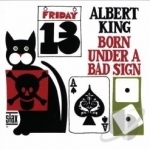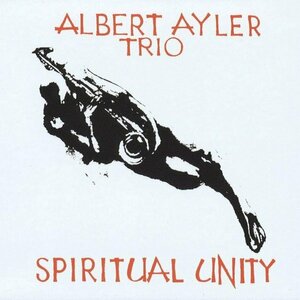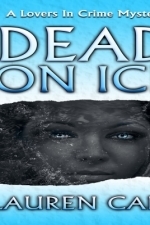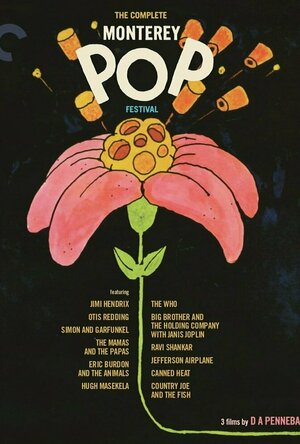Search
Search results
Billy Gibbons recommended Born Under A Bad Sign by Albert King in Music (curated)
Caribou recommended Spiritual Unity by Albert Ayler Trio in Music (curated)
Lindsay (1786 KP) rated Dead on Ice (A Lovers in Crime Mystery #1) in Books
Sep 8, 2017
Dead on Ice is the first book that brings Joshua Thornton and his new girlfriend Cameron Gates together. This being that Cameron Gates is on the scene and investing Thorntons cousin home and finds a bomb in the home. Who planted it? Also who planted Cherry Pickens in the freezer in Joshua Thornton cousin Albert home.
Joshua goes along with Cameron while she investigates Cherry Pickens and then runs to have to solve Angie's murder. They do quite a few things. Donny gets involved a bit as well. What would all of Cherry Pickens friends want her dead? Cameron Gates has to figure out who and why all would want Angie and Cherry dead?
There are twists and turns to the end. Suspects are all over town in Hancock county. Will they find the killer of both Angie and Cherry? You will want to read to find out.
Lauren Carr is one talented writer. She brings you along to find out who the killer is. One thing I love about her mysteries is that you never know who the murderer is? I have read a few of her books already and reviewed a few of them. You are welcome to read my reviews that are part of this audiobook palooza. My reviews are Cancelled Vows, A Fine Year for Murder, Killer in the Band, The Murders at Astaire Castle, Candidate for Murder, 3 Days to Forever, Kill and Run, Old Love Die Hard, 12 To Murder, Open Season for Murder.
Joshua goes along with Cameron while she investigates Cherry Pickens and then runs to have to solve Angie's murder. They do quite a few things. Donny gets involved a bit as well. What would all of Cherry Pickens friends want her dead? Cameron Gates has to figure out who and why all would want Angie and Cherry dead?
There are twists and turns to the end. Suspects are all over town in Hancock county. Will they find the killer of both Angie and Cherry? You will want to read to find out.
Lauren Carr is one talented writer. She brings you along to find out who the killer is. One thing I love about her mysteries is that you never know who the murderer is? I have read a few of her books already and reviewed a few of them. You are welcome to read my reviews that are part of this audiobook palooza. My reviews are Cancelled Vows, A Fine Year for Murder, Killer in the Band, The Murders at Astaire Castle, Candidate for Murder, 3 Days to Forever, Kill and Run, Old Love Die Hard, 12 To Murder, Open Season for Murder.
Gareth von Kallenbach (980 KP) rated This is 40 (2012) in Movies
Aug 7, 2019
The last time we saw Pete and Debbie in the movie “Knocked Up”, they were just reconciling after a short separation. Pete found Debbie too controlling and regularly escaped the house leading Debbie to believe he was having an affair when really he was in a fantasy baseball draft. Five years later, Pete is no longer a band promoter but trying to keep his own record label afloat, while Debbie owns and manages a clothing boutique.
To the casual observer, Pete and Debbie, played with great chemistry by Paul Rudd and Leslie Mann, live an idyllic life with a nice house, two daughters and promising businesses. But a closer look finds Pete would rather play Scrabble on his iPad while on the toilet than spend time playing with his daughters. Most would never guess Debbie is a stress smoker since she goes to great lengths to hide her habit. Stressing over turning 40 isn’t helping her quit and neither is trying to figure out which of her employees is stealing from her. Is it the sexpot Desi, played easily by Megan Fox, or is it the strange Jodi, played with eerie weirdness by Charlyne Yi? As for Pete’s business, his stubborn antipathy towards popular music is driving his record label towards bankruptcy. But that’s not all that’s troubling Pete and Debbie. Both have daddy issues and neither know how quite to handle their over-emotional 14 year old daughter.
Sound like a hodge-podge of dilemmas? It certainly is. What started out as an amusing tale of turning 40 quickly devolved into a manic mess of pointing fingers, curse words, teenage angst and mental breakdowns. At one point in the film, Debbie’s dad, played by John Lithgow, looked utterly confused and I could empathize. If this movie had a storyline, it got lost along with any sympathy for Pete or Pete’s dad played by Albert Brooks. You know it’s bad when you start hoping the 8 year old daughter, Charlotte, says something funny again to break the tension.
With this strong cast of actors, including director Judd Apatow’s daughters Maude and Iris who played Pete and Debbie’s daughters, Sadie and Charlotte, there was no issue with the performances. Maybe some of the story was trimmed away in the editing room, but with a run time of 134 minutes, one would think some semblance of a storyline could have been left. Sure, there was plenty to laugh at, especially with bit parts played by Jason Segal, Melissa McCarthy and Chris O’Dowd.
I really wanted to like this movie. Judd Apatow, Paul Rudd and Leslie Mann sounded like the perfect trio to make a funny movie. Alas, the funny stuff is in the trailers. Save yourself some dough and wait for the DVD, where some of the storyline may make it in the deleted scenes.
To the casual observer, Pete and Debbie, played with great chemistry by Paul Rudd and Leslie Mann, live an idyllic life with a nice house, two daughters and promising businesses. But a closer look finds Pete would rather play Scrabble on his iPad while on the toilet than spend time playing with his daughters. Most would never guess Debbie is a stress smoker since she goes to great lengths to hide her habit. Stressing over turning 40 isn’t helping her quit and neither is trying to figure out which of her employees is stealing from her. Is it the sexpot Desi, played easily by Megan Fox, or is it the strange Jodi, played with eerie weirdness by Charlyne Yi? As for Pete’s business, his stubborn antipathy towards popular music is driving his record label towards bankruptcy. But that’s not all that’s troubling Pete and Debbie. Both have daddy issues and neither know how quite to handle their over-emotional 14 year old daughter.
Sound like a hodge-podge of dilemmas? It certainly is. What started out as an amusing tale of turning 40 quickly devolved into a manic mess of pointing fingers, curse words, teenage angst and mental breakdowns. At one point in the film, Debbie’s dad, played by John Lithgow, looked utterly confused and I could empathize. If this movie had a storyline, it got lost along with any sympathy for Pete or Pete’s dad played by Albert Brooks. You know it’s bad when you start hoping the 8 year old daughter, Charlotte, says something funny again to break the tension.
With this strong cast of actors, including director Judd Apatow’s daughters Maude and Iris who played Pete and Debbie’s daughters, Sadie and Charlotte, there was no issue with the performances. Maybe some of the story was trimmed away in the editing room, but with a run time of 134 minutes, one would think some semblance of a storyline could have been left. Sure, there was plenty to laugh at, especially with bit parts played by Jason Segal, Melissa McCarthy and Chris O’Dowd.
I really wanted to like this movie. Judd Apatow, Paul Rudd and Leslie Mann sounded like the perfect trio to make a funny movie. Alas, the funny stuff is in the trailers. Save yourself some dough and wait for the DVD, where some of the storyline may make it in the deleted scenes.




